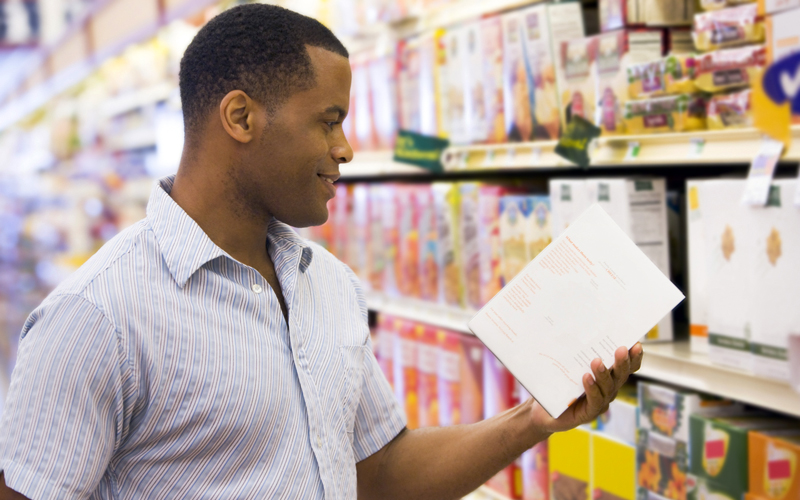
by guest blogger Joyce de Brevannes, market outreach manager for the Non-GMO Project
It’s been 20 years since the “Flavr Savr” tomato, the first commercially produced genetically modified organism (GMO), appeared on grocery store shelves. The tomato, whose genes had been spliced to include genes from an Arctic flounder to extend its shelf life, had its life cut short when consumers vocally fought back against its questionable genetics and lack of flavor and retailers rejected it for its inability to hold up during shipping.
Since then, GMOs have become increasingly prevalent in the food system, and consequently more hidden from consumer view. At present, more than 80 percent of packaged foods include GMO ingredients, and many Americans have been consuming GMOs at almost every meal for years without realizing it. However, the tide is changing as consumers become increasingly aware of the unlabeled presence of GMOs in food.
Today’s savvy shoppers are demanding more transparency with regard to where their food comes from, how it’s made, and which ingredients might be GMO. This increased engagement on the part of shoppers has helped the Non-GMO Project grow from the first few products being verified in 2010 to more than 22,000 Non-GMO Project Verified products today.
As a result of increasing consumer concern, the demand for non-GMO products has skyrocketed, creating change throughout the entire supply chain:
- Consumers want to know what’s in their food, seek answers and non-GMO choices from their retailers →
- Retailers, eager to provide excellent customer service, bring awareness to the non-GMO topic and stock shelves with non-GMO and organic choices →
- Manufacturers that want to remain relevant on retailer shelves are listening to consumer demand and obtaining Non-GMO Project Verification of their products →
- Growers wanting to provide the non-GMO ingredients manufacturers are seeking, plant more non-GMO acreage. ✓
The role that retailers play in this non-GMO ripple of change throughout the supply chain is critical. They serve as the primary interface between the consumer and the manufacturer. The products they stock on their shelves and their willingness to listen to the requests of their shoppers are having a transformative impact.
Across the country, stores of all sizes are working to provide consumers with an informed choice about the food they eat. Last year, Whole Foods Markets committed to GMO transparency in its stores by 2018. Similarly, retailers like Good Earth Natural Foods, Jimbo’s…Naturally, MOM’s Organic Market, Natural Grocery Company, and Ocean Beach People’s Organic Food Co-op have clearly defined non-GMO policies and have made significant donations in support of labeling initiatives.
Even retailers that are more mainstream are finding ways to demonstrate their non-GMO commitment to shoppers. Kroger and Safeway joined more than 9,000 retailers, including Target and Trader Joe’s, in rejecting not-yet-approved GMO salmon. These retailers committed to not stock AquAdvantage® salmon on their shelves, even with FDA approval.
Real change starts at retail. The Non-GMO Project has always appreciated the pivotal role that retailers play in education and outreach. This year’s Non-GMO Month, which happens every October, has more than 2,000 registered retailers, all of which are fully committed to acting as a vital resource to both consumers and manufacturers. Retailers have historically been, and continue to be, a critical part of the Right to Know Movement. So the next time you see your local store’s shelves stocked with non-GMO options, remember to thank that retailer for helping to make a difference in the future of our food system.

Joyce de Brevannes is the Market Outreach Manager for the Non-GMO Project. She enjoys supporting retailers and expanding outreach programs for consumers. A recent transplant from Los Angeles, she is enjoying the stunning natural beauty that Bellingham, Washington, has to offer.




Thank you for working so hard for all of us on this project. I only buy my food and vitamins from Natural Grocer’s (formally Vitamin Cottage) here in Colorado. They are not only very good about selling Non GMO products, but the staff is very knowledgeable about supplements as well. I only go into Safeway to use their blood pressure machine. If we let corporations know that we will only buy non-GMO goods, they will get the message or they will lose lots of money. More and more people are aware of the danger of GMO’s and are willing to pay more for food without GMO’s in it. Keep up the good work!
YES!! the more consumers vote with their wallet the quicker changes will happen,
What the good ole USA NEEDS BADLY is a FEDERAL LAW requiring GE/GMO labeling on ALL food products! I for one have been bugging my Senators and Rep (I’ll have a new one next year since Rush Holt is retiring) and I will let my new Rep know my feelings IMMEDIATELY!
You should push all your readers to do the same.
Have a great day! Bobby Deems